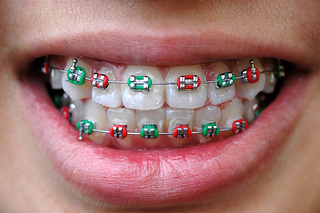What is early intervention?
June 26th, 2013

Many developing orthodontic problems can be intercepted and corrected if diagnosed and treated at an early age. Dr. Todd Hamilton and our team at Hamilton Orthodontics recommend children have their first orthodontic evaluation no later than age seven, or younger if the front four permanent teeth have replaced the baby teeth. Early treatment, also known as interceptive treatment or Phase I treatment, provides both timely detection of problems and greater opportunity for more effective treatment. Early intervention guides growth and development, preventing serious problems later.
If your child is showing these signs, it may be time to think about early orthodontic treatment:
- Early or late loss of baby teeth (your child should typically start losing teeth around age five or six, and will have all their permanent teeth in around age 12 to 13)
- Difficulty chewing and/or biting
- Mouth breathing
- Sucking his or her thumb
- Speech impediment
- Protruding teeth (the top teeth and the bottom teeth extend away from each other)
- Crowded front teeth
- Teeth that don't come together in a normal manner or even at all
Early intervention will greatly reduce the severity of your child’s case, and therefore reduce the length of treatment time and cost for a second phase of treatment when all of his or her permanent teeth have erupted. An evaluation at our Denver, NC office will determine if your child’s dental and skeletal growth is proceeding properly or if interceptive treatment is needed. Many times, a more severe problem can be corrected using sophisticated removable appliances instead of traditional orthodontic treatment.
To schedule a consultation for your child to visit with Dr. Todd Hamilton, please give us a call! We will provide your child with an initial exam, and discuss with you the best steps to take toward caring for your child's smile.




